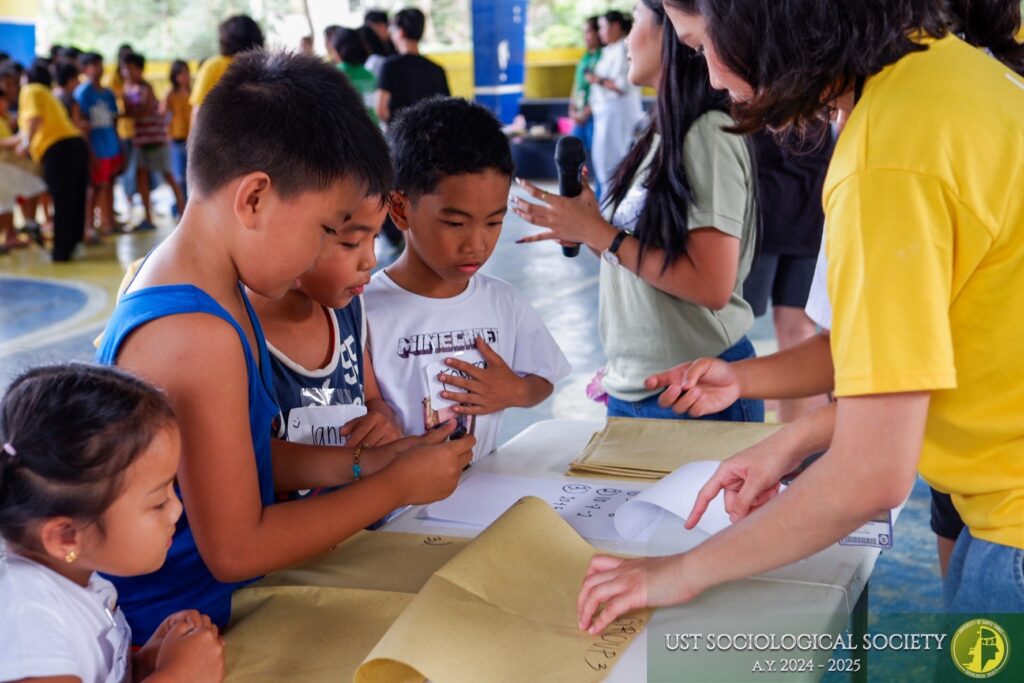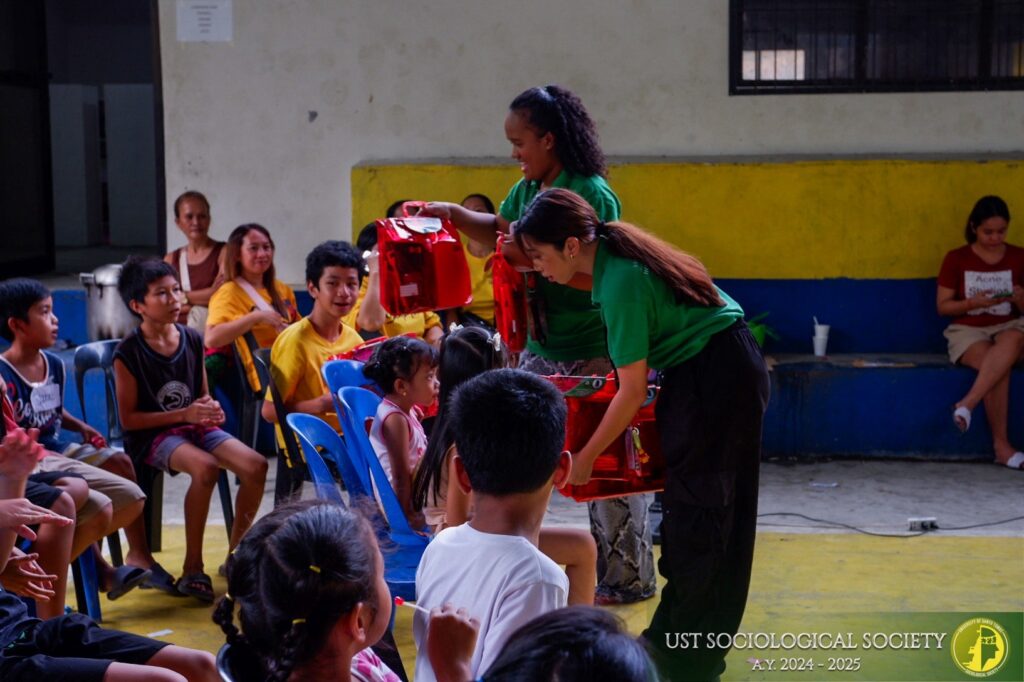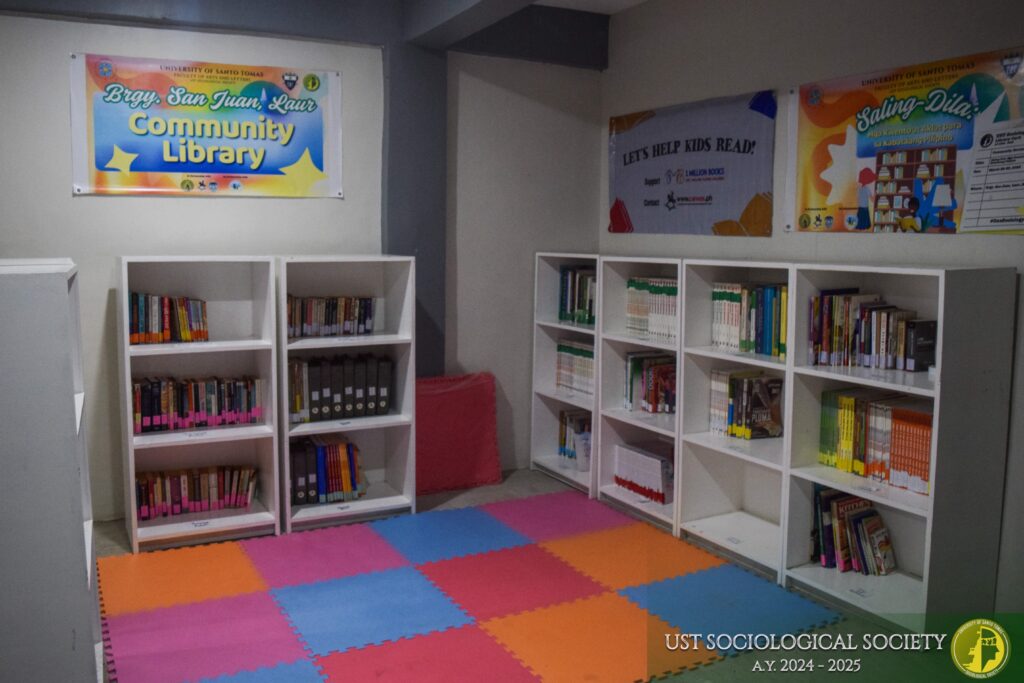The UST Sociological Society (USTSS), a college-based organization (CBO) under the Faculty of Arts and Letters, implemented their two-day community development project titled “Saling-Dila: Mga Kwento at Aklat Para sa Kabataang Pilipino” at Brgy. San Juan, Laur, Nueva Ecija on March 28 to 29, 2025.



A functional community library was built within the barangay premises to make reading accessible to the Laur youth. This community development project aimed to address the growing need for literacy and education. This initiative served as a vital bridge, promoting access to education by providing essential learning tools and a conducive space for socialization. Further, the initiative established the library as an accessible resource center for people of all ages in the community, emphasizing the transformative power of literacy and written words in changing lives and empowering future generations.
To establish a sustainable practice, the Sangguniang Kabataan of Brgy. San Juan, Laur, Nueva Ecija were given an orientation on library organization and management. By offering essential resources like these, USTSS underscored the importance of literacy skills among youth and educational empowerment–a manifestation of the University’s 3 Core Concepts, namely Competence, Commitment, and Compassion.
Despite the far-reaching area of San Juan, Laur, the community library project ensured that the hope for learning remains even in remote areas. This initiative reaffirmed the organization’s dedication to social empowerment and educational access. The library was designed to be inclusive and accessible to children of all ages, offering a welcoming, dedicated space for reading, learning, and discovery. Beyond just providing books, the project emphasized the transformative power of education and how even the most remote communities deserve the tools to dream, grow, and thrive.
Plans within the Sangguniang Kabataan (SK), along with the other Barangay Officials, are already underway to expand the library’s collection, implement interactive reading sessions, and establish literacy and enrichment programs tailored to the needs of local youth. Ultimately, this project embodies how sociology can be a transformative force that can change lives and build lasting impact – one book, one child, and one community at a time.


